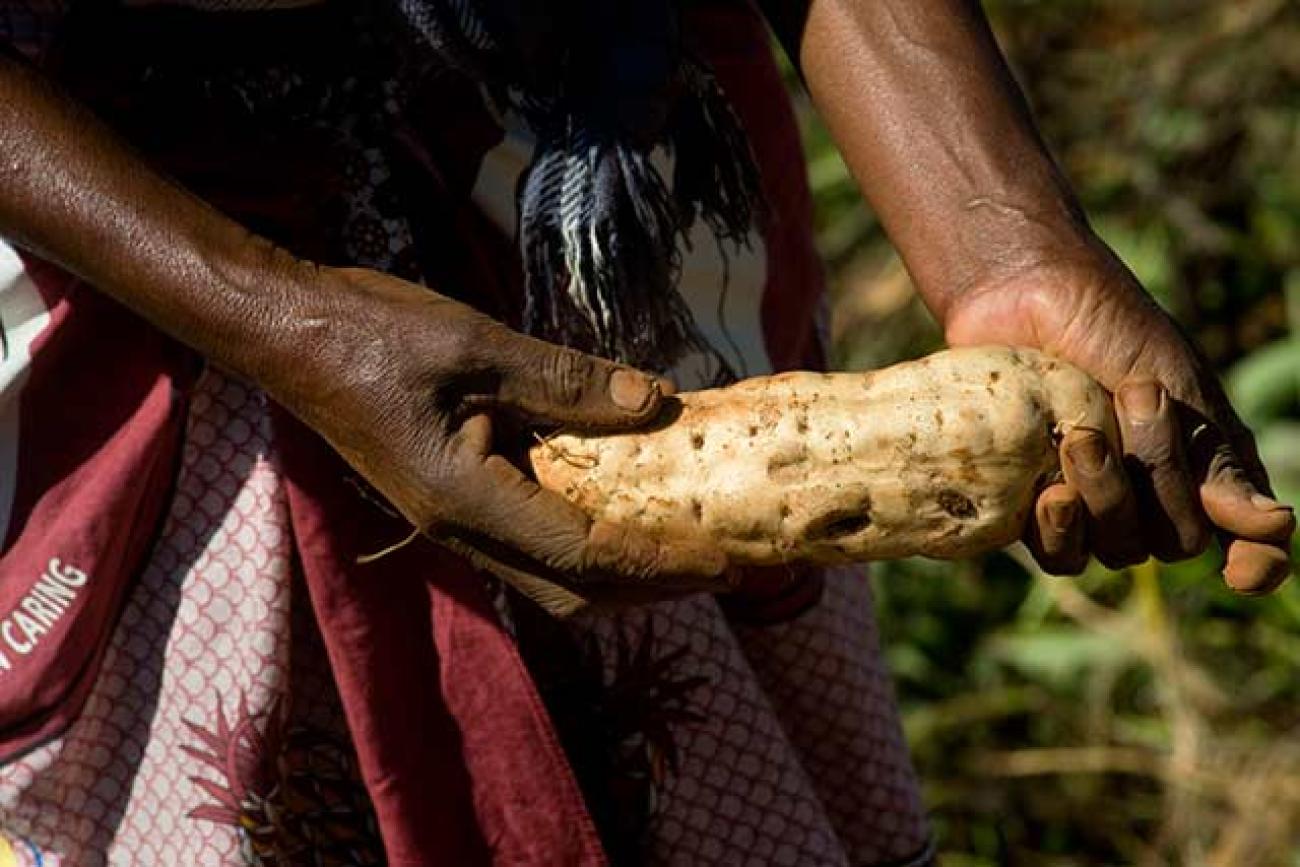Sweet potatoes – cultivating resilience, fighting malnutrition in Somalia

The use of orange-fleshed sweet potatoes as animal fodder and food for humans has been successfully tested in Somalia
The use of orange-fleshed sweet potatoes – containing high levels of Vitamin A precursor – as animal fodder and food for humans has been successfully tested in southern Somalia. The initiative was conducted in the framework of an FAO-United Nations Children’s Fund (UNICEF)–World Food Programme (WFP) Joint Resilience Programme in Somalia, which seeks to help vulnerable communities to better withstand shocks and avoid resorting to negative coping strategies.
Vitamin A deficiency can erode the immune system and contribute to malnutrition, most seriously affecting pregnant women and young children in low-income countries. Somalia, like many developing countries, has a high prevalence of Vitamin A deficiency and malnutrition among its population. According to the FAO-managed Food Security and Nutrition Analysis Unit, 218 000 children in Somalia are estimated to be acutely malnourished, with 45 000 at risk of death as a result. As of September 2014, over 1 million Somalis are severely food insecure.
Over the past 12 months, FAO agronomists have been working with farming communities in Dollow district, where livestock is a mainstay, to conduct trials on the use of sweet potatoes to overcome pasture scarcity. The trials included four strains of orange- and white-fleshed potatoes, as well as Sudan, Kikuyu and Napier varieties of grass. FAO staff distributed the fodder varieties to 50 households in Dollow District, who tested them on 50 plots.
Orange-fleshed sweet potatoes emerged as a favourite for humans as well as for livestock – the leaves are fed to animals, while people consume the highly nutritious tuber. “Sweet potatoes are very sweet and nutritious to eat,” said Ali Bajun while eating a boiled potato for his lunch in his field. He added, “the animals too love potato leaves as fodder and we have already seen good results in their body condition and the amount of milk they provide”.
At the start of the trial, FAO also helped the 50 participating farmers to form a cooperative in order to intensify their production and better engage with markets.
The farmers producing these sweet potatoes will also be supplying nutrition projects, under the FAO-WFP-UNICEF joint resilience programme. FAO is also partnering with the International Potato Centre to roll out the initiative in Dollow, as well as extending it to other areas of Somalia.
“It is our hope that by re-introducing orange-fleshed sweet potatoes in Somalia, we will not only be combating widespread malnutrition, but also be providing fodder for livestock, which many households depend on”, said Jose Lopez, FAO’s agriculture sector coordinator in Somalia.
In January 2015, FAO Somalia will launch a strategic communication programme to promote the consumption of orange-fleshed sweet potatoes by Somali households to diversify their diets and enhance their nutrition.
Link to original story




